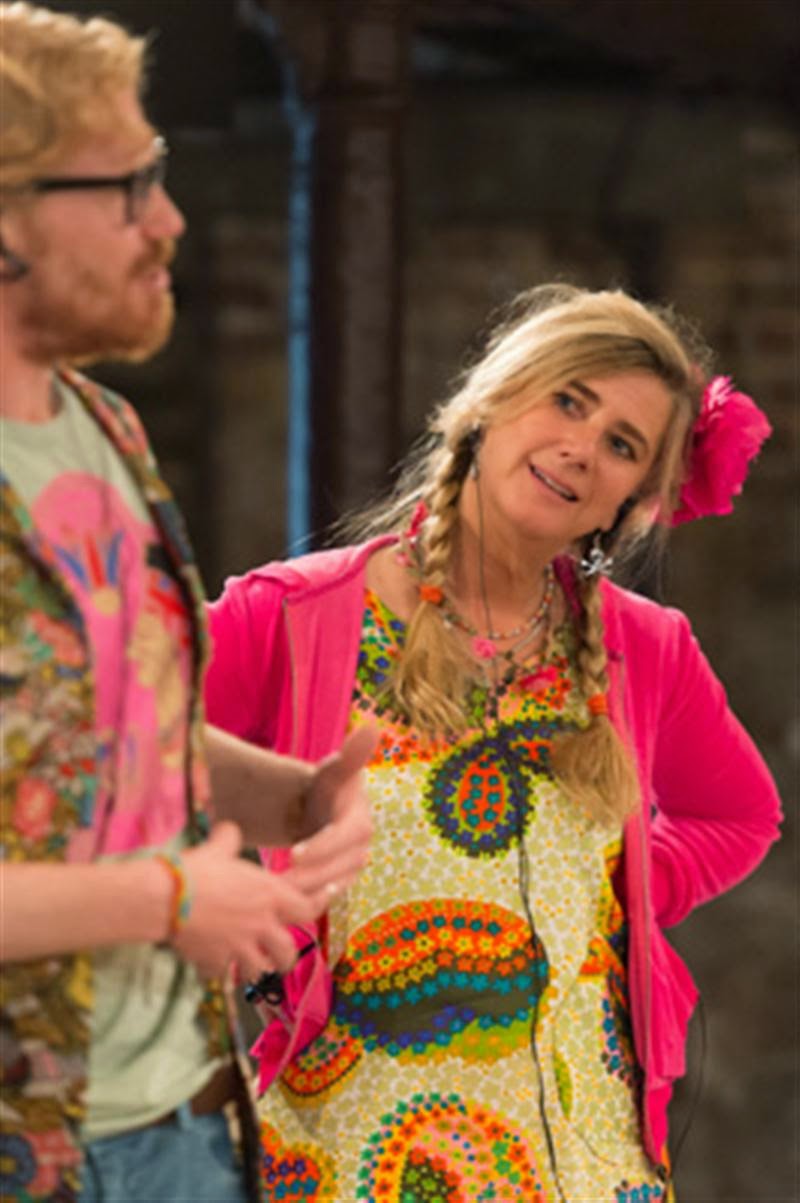The play opens with auditions for the
Perhaps as a conscious echo of the gardening competition that framed London Road, Little Revolution largely focuses on a group of locals getting together to raise funds and awareness for Siva (Rez Kempton,) a well-liked local shopkeeper whose shop was looted and vandalised in the riots. Organised by well-meaning, hippyish couple Tony (Michael Schaeffer) and Sarah (Imogen Stubbs,) the campaign becomes popular in the media as the image of community rallying behind the victims (Rufus Wright plays a radio journalist making his own documentary about the group at the same time as Alecky makes hers.)
But the play soon undercuts this as Jane (Ronni Ancona,) the mother of a mixed-race son frequently targeted by police teams up with campaigner Sadie (Melanie Ash) to present the view that this is only papering over the cracks. Duggan's death proves to have been just the trigger after a long build-up of racial tensions, and while Jane and Sarah are unlikely to come to blows any time soon, different areas of Hackney have very different views on how much to blame the teenagers are, and an inherent dislike of each other.
Although there's always been references to there being an interviewer present in her past plays, Blythe here puts herself into the play more literally - in fact she appears as herself, reliving a couple of occasions when she got a bit too close for comfort to the action. She comes across as more nervous than one might expect from someone who does this for a living, with an irritating nervous laugh that suggests one reason she's placed herself in the action is to allay any fears from contributors that they might be portrayed in a bad light - she's as much if not more of a punchline than Tony and Sarah, who feel the need to defend their own middle class roots.
It also means we can see how she engages with her subjects, like when she returns a couple of years later to find out responses to the police being absolved of blame for Duggan's death, to find Lucian Msamati's stoical barber unsurprised by the verdict. Little Revolution is as much about Blythe's process as it is about the riots, explaining some of its flaws: She didn't have a commission to do these interviews, and with nobody interested in the play until Rupert Goold took over the Almeida, she'd abandoned it for a while. It means there's a feeling of not all voices having been heard, but it's still an absorbing evening that's perhaps a bit lighter than might be expected given the subject matter, though with troubling undercurrents.
Little Revolution by Alecky Blythe is booking until the 4th of October at the Almeida Theatre.
Running time: 1 hour 25 minutes straight through.





No comments:
Post a Comment